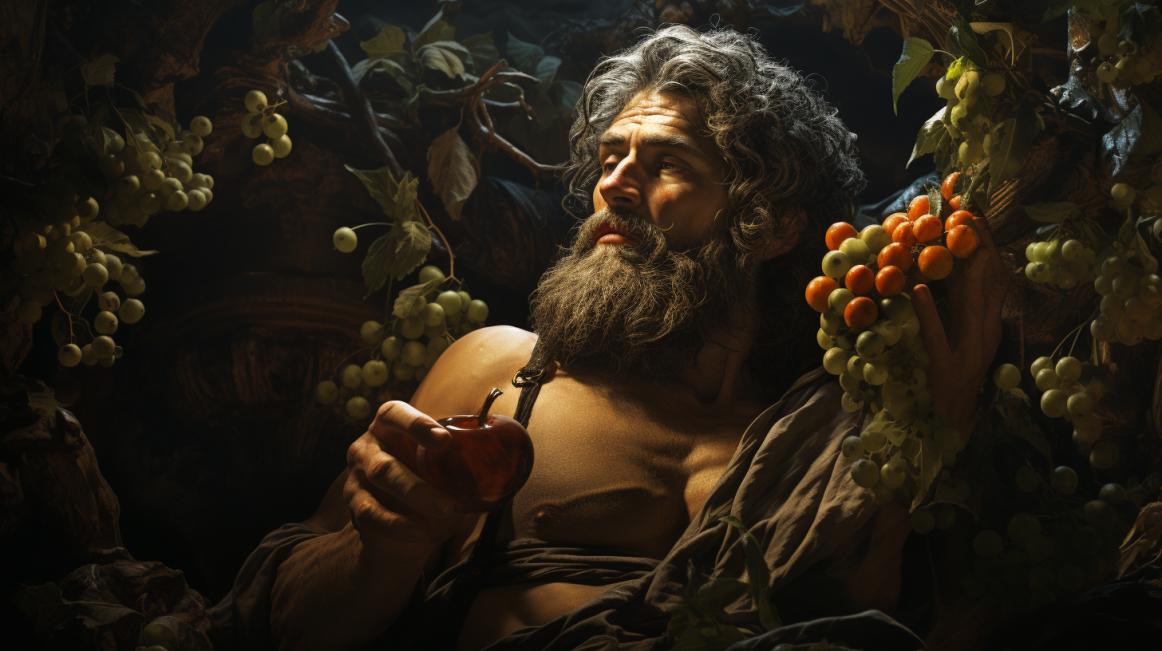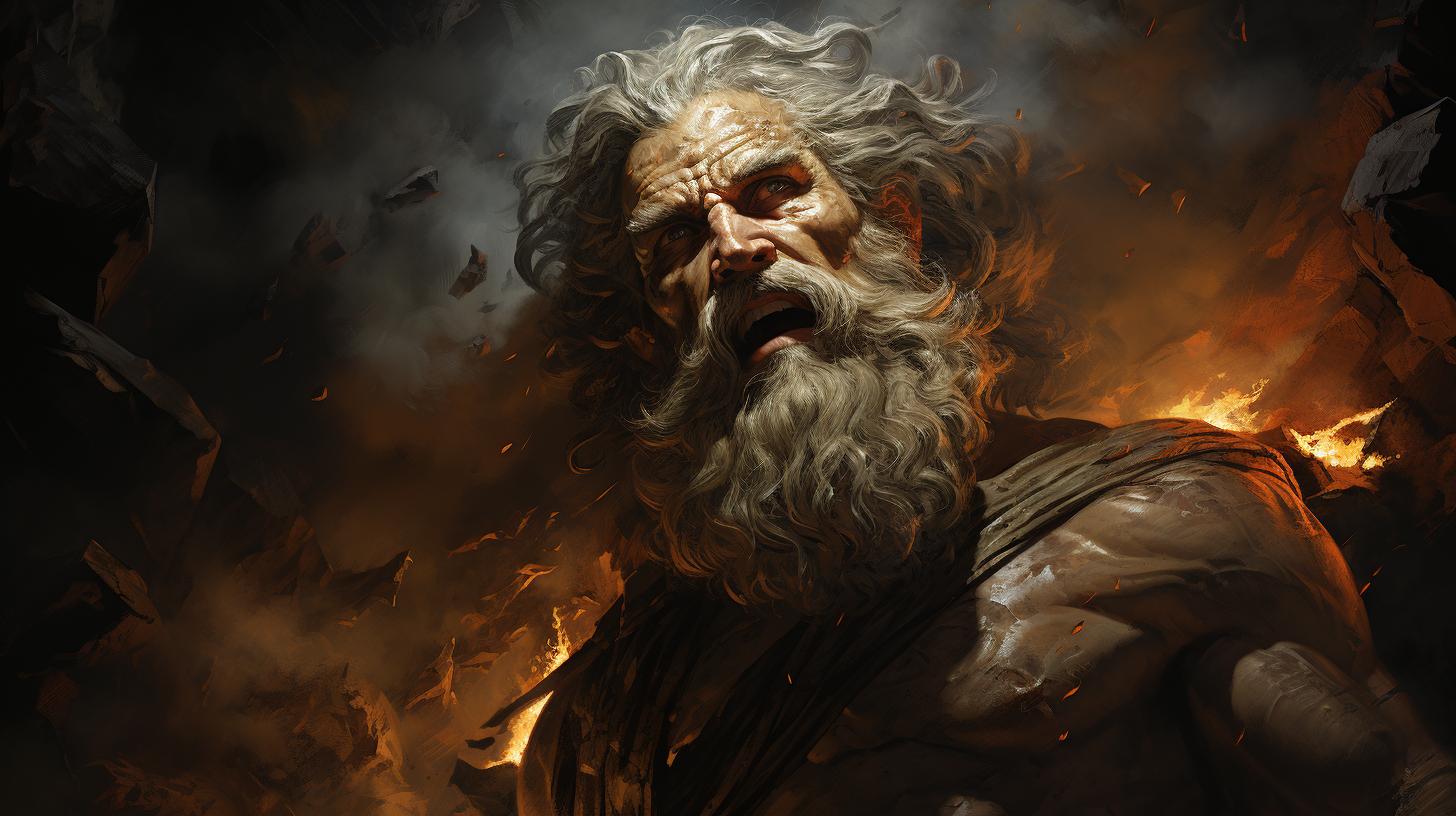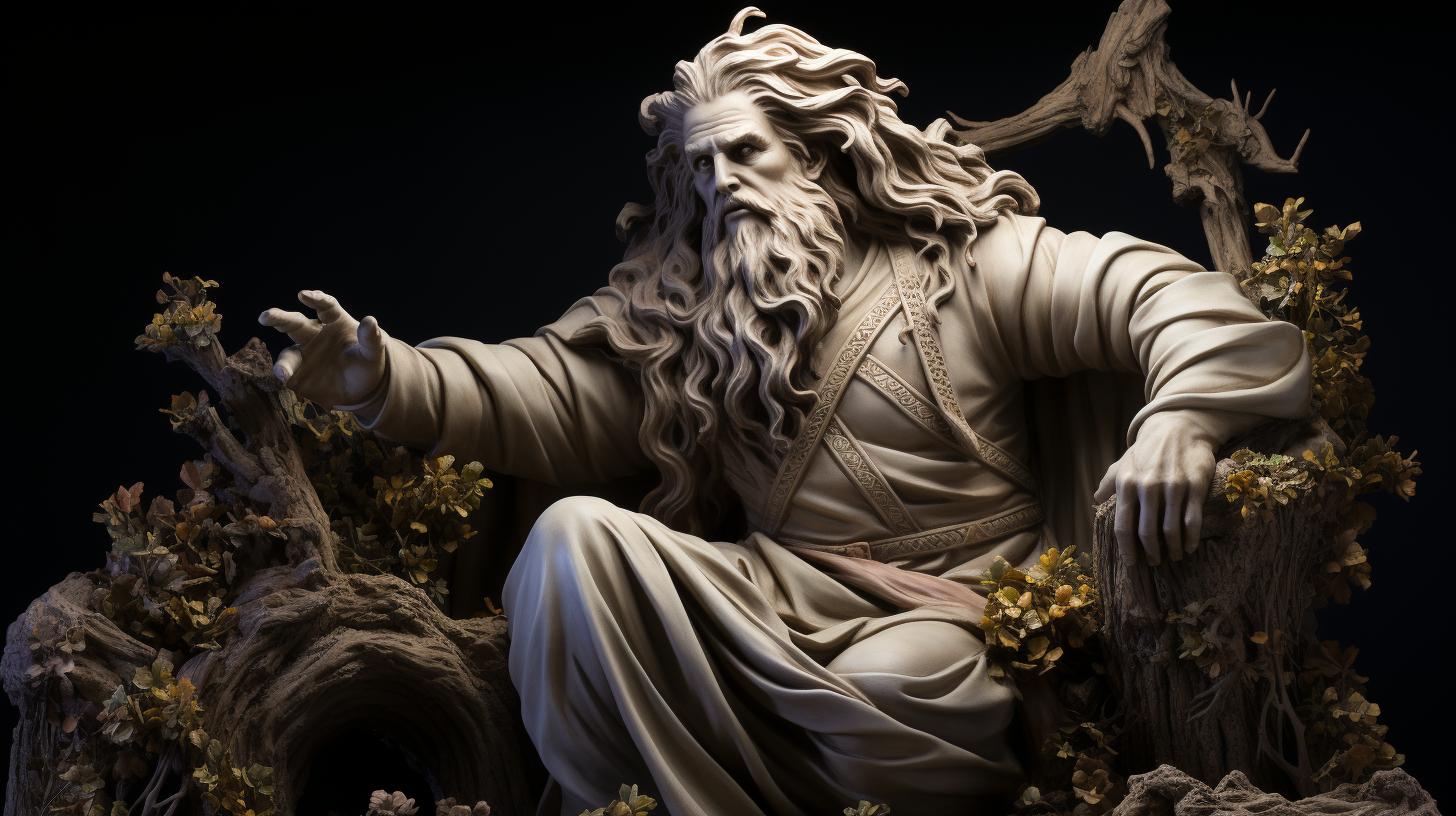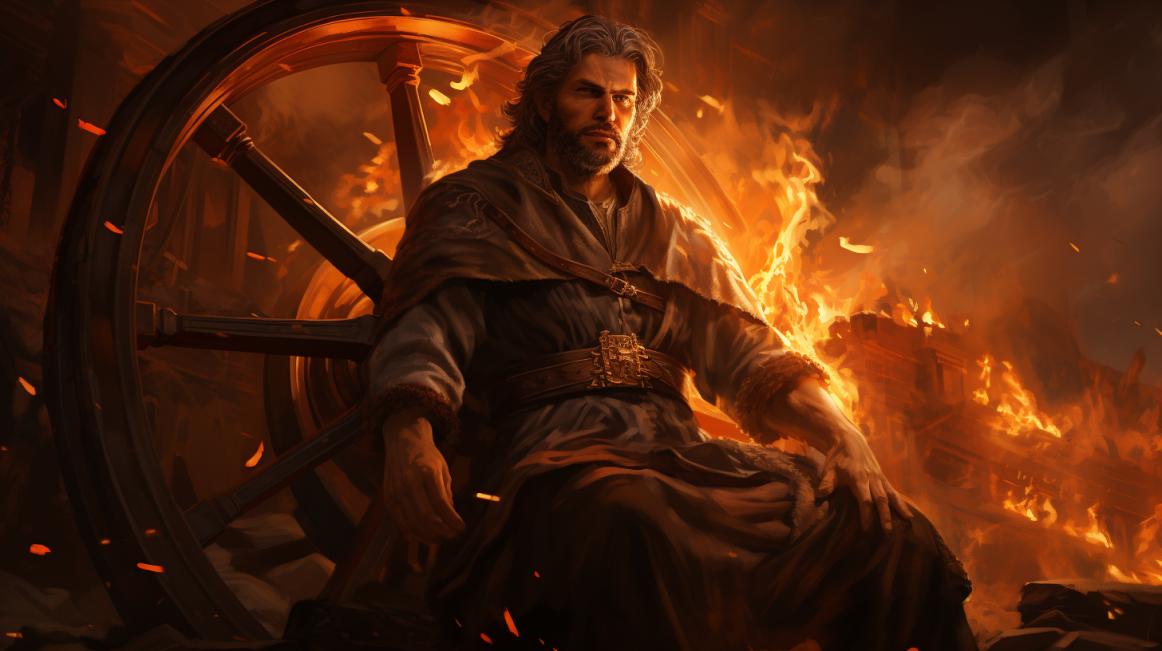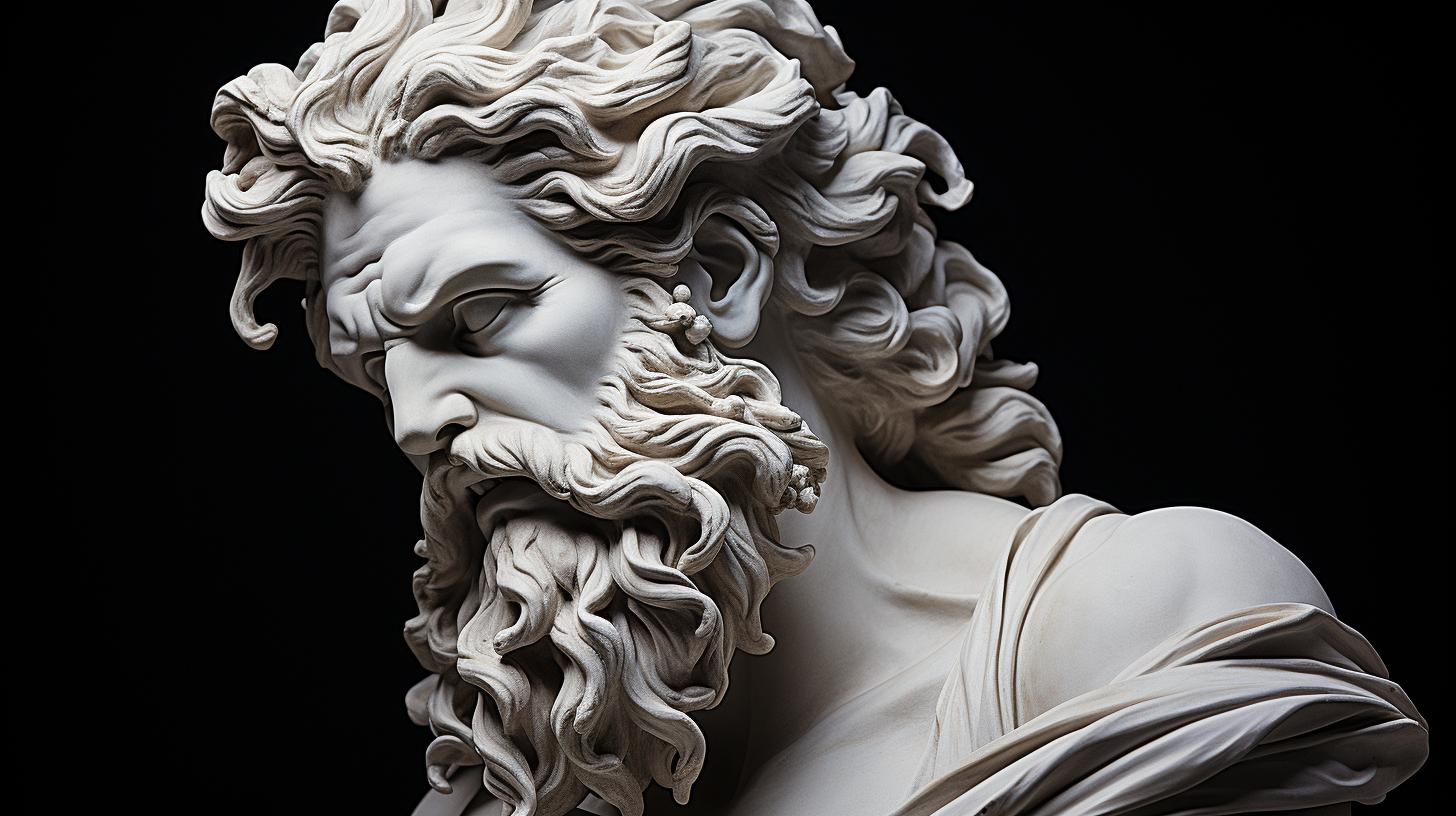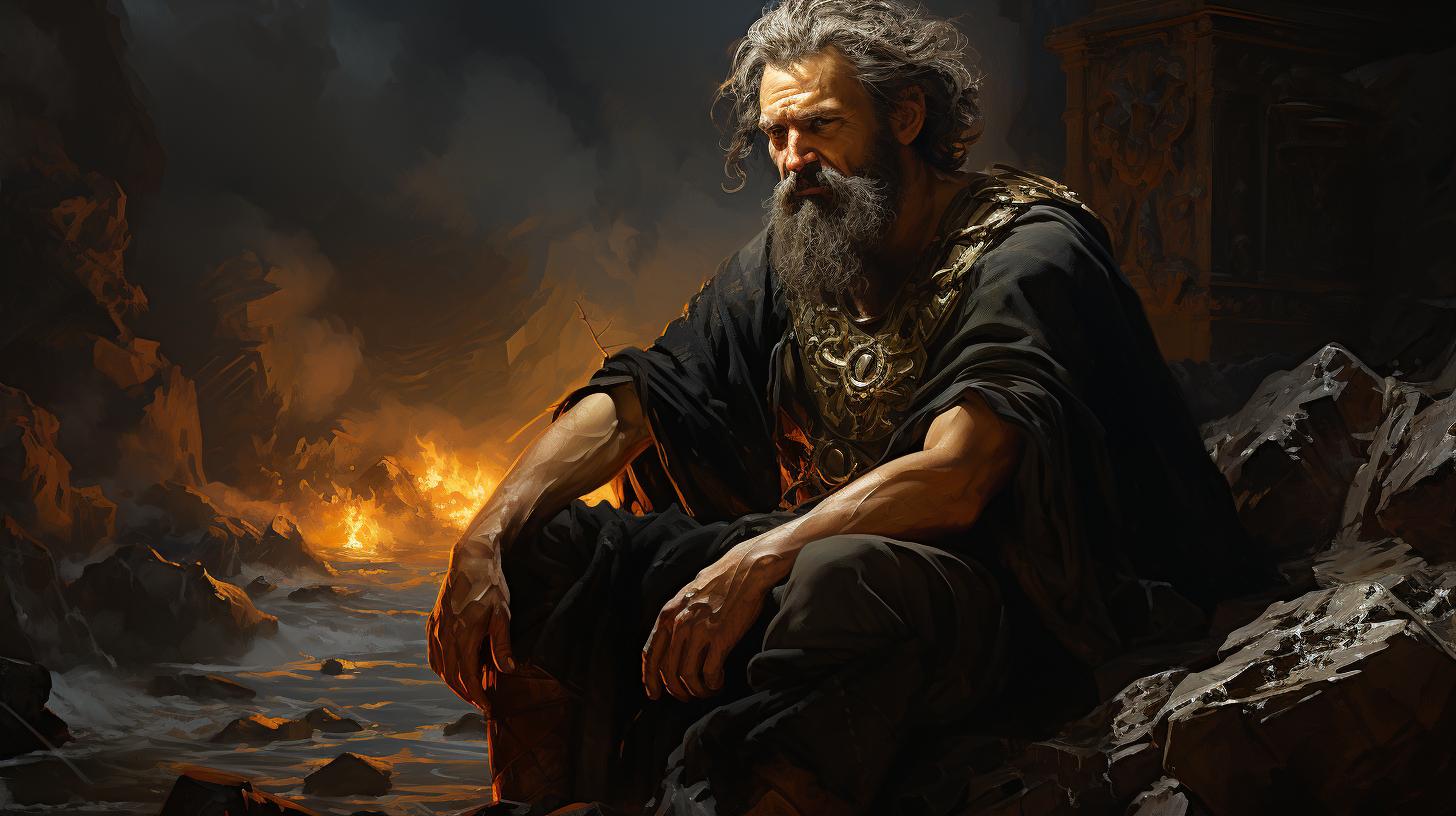Exploring the Fascinating Marsyas Greek Mythology: Unveiling the Legend
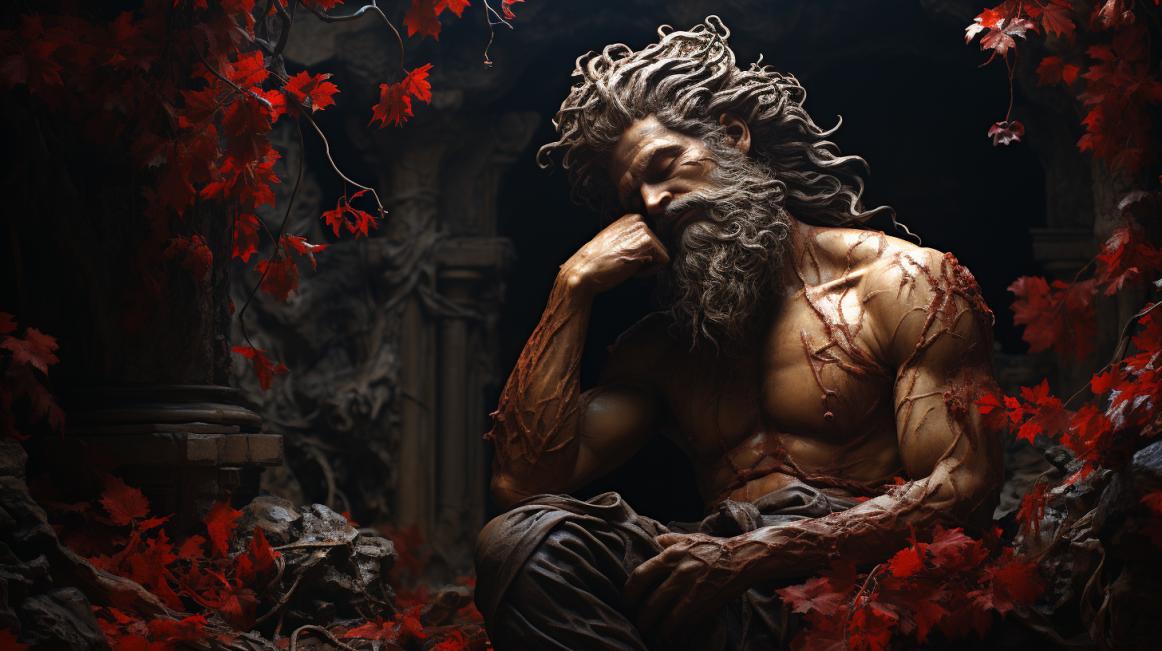
Marsyas, a prominent figure in Greek mythology, holds a significant place in ancient tales. This article explores various aspects of the Marsyas myth, shedding light on its origin, the legendary contest between Marsyas and Apollo, symbolic meanings in Greek music, and depictions in art and literature.
Additionally, it examines Marsyas’ role in Roman mythology, connections with other mythological figures, historical significance in ancient Rome, and the enduring legacy of the Marsyas myth in modern times. From sculptures to contemporary interpretations, Marsyas continues to captivate and inspire across different artistic mediums.
The Origin of Marsyas in Greek Mythology
In Greek mythology, the origins of Marsyas can be traced back to the ancient city of Phrygia. According to legend, he was born from the blood of the earth goddess Gaia, who had been impregnated by the seed of the Titan Uranus. This unique birth gave Marsyas a special connection to nature and the earth.
As he grew older, Marsyas developed a deep passion for music and became an exceptionally skilled musician. Some accounts suggest that he even invented a musical instrument known as the “aulos,” a double-reed wind instrument.
Marsyas’ talents and love for music brought him fame throughout the land. He became known as the patron of shepherds and was revered for his ability to entertain both gods and mortals with his enchanting melodies.
However, the story of Marsyas takes a tragic turn when he crosses paths with the god Apollo…
The Myth of Marsyas and Apollo
The story of Marsyas and Apollo is a captivating tale from Greek mythology that showcases rivalry, music, and tragedy. This myth tells the tale of a contest between the mortal Marsyas and the divine Apollo, highlighting the pride and downfall of the mortal challenged by a god.
The Contest Between Marsyas and Apollo
In this legendary contest, Marsyas, renowned for his exceptional musical skills, boldly challenges Apollo, the god of music, to a musical duel. The competition takes place in Phrygia, where both Marsyas and Apollo showcase their immense talent on their chosen instruments.
Apollo, armed with his enchanting lyre, dazzles the audience with his divine melodies that effortlessly captivate hearts. On the other hand, Marsyas skillfully plays the double flute, generating irresistible rhythms that echo through the air.
The contest becomes a battle of skill and style, as both competitors strive to outshine each other. The contrasting sound of the lyre and the flute fills the atmosphere, enchanting all who listen.
The Tragic Fate of Marsyas
Despite Marsyas’ remarkable talent, Apollo emerges as the victor in the contest. Consumed by his pride, Marsyas challenges Apollo to another competition, this time with a dangerous wager. Marsyas declares that if he wins, he will have the right to do whatever he desires with Apollo; however, if he loses, Marsyas will endure a severe punishment at the hands of Apollo.
Unfortunately, Apollo proves his superiority once again, triumphing over Marsyas in this second contest.
Apollo’s victory condemns Marsyas to a tragic fate – flaying. The god punishes Marsyas by tying him to a tree and stripping the flesh from his body, a brutal and agonizing punishment for his audacity.
This grim ending serves as a cautionary tale, reminding mortals of the consequences of challenging divine authority. It stands as a reminder of the limits of mortal talent in comparison to the power of the gods.
The Symbolism of Marsyas in Ancient Greek Music
In ancient Greek music, Marsyas holds a significant symbolic role. As a satyr and skilled musician, he represents the power of nature and the wild, untamed forces that music can evoke.
Marsyas’ flute-playing abilities, often depicted as mesmerizing and enchanting, symbolize the harmonious connection between humans and nature.
The story of Marsyas and Apollo’s musical contest further highlights the symbolism of Marsyas in Greek music.
While Apollo represents order, civilization, and the divine, Marsyas embodies the primal and instinctual aspects of music. Their competition represents the contrast between Apollo’s controlled, refined music and Marsyas’ raw, emotive melodies.
The symbolic significance of Marsyas in ancient Greek music extends beyond his role as a musician. He is often associated with Dionysus, the god of wine and revelry, emphasizing his connection to the ecstatic and transformative power of music.
Marsyas’ tragic fate, as punishment for daring to challenge a god, serves as a cautionary tale about the potential dangers of unrestrained expression.
- Marsyas symbolizes the untamed forces of nature in Greek music.
- His flute-playing abilities represent the harmonious connection between humans and nature.
- The contest with Apollo contrasts order and civilization with the primal and instinctual aspects of music.
- Marsyas’ association with Dionysus highlights his connection to ecstatic and transformative music.
- The story of Marsyas serves as a cautionary tale about the boundaries of artistic expression.
Marsyas in Roman Mythology
In Roman mythology, Marsyas also held a significant role, albeit with some variations from his Greek counterpart.
The Romans adopted and incorporated many elements of Greek mythology into their own culture, including the story of Marsyas.
In Roman mythology, Marsyas is often portrayed as a satyr, a creature associated with nature and wild behavior.
He is depicted as a companion of the wine god Bacchus, also known as Dionysus in Greek mythology.
The Roman version of the myth revolves around a musical contest between Marsyas and Apollo, similar to the Greek version.
However, there are some differences in the details of the story. The Roman tradition emphasizes the association of Marsyas with the satyr’s natural inclination towards music and celebration.
According to Roman mythology, Marsyas challenged Apollo to a musical competition, playing his flute or panpipes eloquently.
Apollo, who is the god of music as well as many other aspects, confidently accepted the challenge.
The contest took place in front of a distinguished audience, including the gods and goddesses.
Despite Marsyas’ impressive performance, Apollo ultimately emerged as the victor, showcasing his superior musical ability.
However, the consequences for Marsyas in the Roman myth were even more severe than in the Greek version.
According to Roman tradition, as a punishment for daring to compete with a god, Apollo flayed Marsyas alive, leaving him to suffer a gruesome fate.
This version of the myth highlights not only the rivalry between Marsyas and Apollo but also the significance of divine punishment for challenging the gods.
It serves as a cautionary tale about the limits of mortal ambition and the consequences of challenging divine authority.
Connections Between Marsyas and Other Figures in Greek Mythology
In Greek mythology, Marsyas is not only known for his fateful contest with Apollo but also had connections with various other mythological figures. These connections shed light on the interwoven narratives of Greek mythology and the complex relationships between its characters.
Daphne and Apollo
One notable connection can be found between Marsyas and the myth of Daphne and Apollo. Daphne, a nymph of great beauty, caught the attention of Apollo, who pursued her relentlessly.
In a twist of fate, Daphne pleaded for help from her father, a river god, who transformed her into a laurel tree. This myth mirrors the tragic ending of Marsyas, emphasizing the hubris and downfall of mortal beings when challenging divine powers.
The Role of Athena in the Marsyas Myth
Another significant connection lies in the involvement of the goddess Athena in the Marsyas myth. As the goddess of wisdom and strategic warfare, Athena played a crucial role in the fate of Marsyas.
It is believed that she served as the judge during the musical contest between Marsyas and Apollo, ultimately favoring Apollo’s superior performance. Athena’s presence in this myth highlights the significance of divine judgment and her influence in matters of talent and skill.
Overall, the connections between Marsyas, Daphne, Apollo, and Athena demonstrate the intricate web of relationships within Greek mythology. These interwoven narratives serve to deepen our understanding of the complex dynamics and lessons embedded within these ancient myths.
Depictions of Marsyas in Art and Literature
The myth of Marsyas has captivated artists and writers throughout history, leading to various depictions in art and literature. From ancient sculptures to poetic verses, Marsyas’ iconic story has served as a rich source of inspiration.
Let’s explore two significant aspects of Marsyas’ portrayal: his representation in ancient sculptures and statues, and his presence in ancient Greek and Roman poetry.
Marsyas in Ancient Sculptures and Statues
Marsyas’ image has been immortalized in the form of sculptures and statues, showcasing the influence and significance of his myth in ancient art. These representations often depict Marsyas in a distinct pose, with his iconic musical instrument, the aulos, in hand.
Artists skillfully capture his intense expression and muscular physique, embodying the prowess and passion with which Marsyas competed against Apollo.
One renowned depiction of Marsyas is the ancient Roman marble statue known as the “Marsyas at Rest.”
This artwork, believed to date back to the 2nd century AD, portrays Marsyas sitting on a rock, holding the aulos, while contemplating the outcome of the fateful contest. The statue exemplifies the artistic talent of the era and offers a glimpse into the visual interpretation of Marsyas’ story.
Marsyas in Ancient Greek and Roman Poetry
The compelling tale of Marsyas has found its place in the verses of ancient Greek and Roman poetry, further perpetuating the legend. Poets skillfully weave the narrative of the contest between Marsyas and Apollo, emphasizing the tragic fate that befell the daring satyr.
In Greek mythology, Ovid’s “Metamorphoses” features Marsyas prominently. The poet vividly describes the musical duel between the two rivals and the subsequent punishment inflicted upon Marsyas by the vengeful Apollo. The accounts of Marsyas’ challenging Apollo with his aulos and the inevitable consequences create a powerful narrative that resonates with readers.
Similarly, Virgil’s “Aeneid” alludes to Marsyas in a metaphorical sense, drawing upon the fable to depict the destructive consequences of hubris. The mention of Marsyas serves as a cautionary tale and reflects the enduring impact of his myth in Roman literature.
Throughout the ages, ancient poets have celebrated Marsyas’ audacity and explored the themes of talent, rivalry, and the consequences of challenging the gods. Their poetic renditions contribute to the richness of Marsyas’ portrayal in the literary realm.
- Marsyas’ representation in ancient sculptures and statues showcases his significance in ancient art.
- A prominent example is the “Marsyas at Rest” statue, depicting him contemplating the outcome of the contest.
- Ancient Greek and Roman poetry, such as Ovid’s “Metamorphoses” and Virgil’s “Aeneid,” further immortalize Marsyas’ story.
- These poetic accounts emphasize the rivalry between Marsyas and Apollo, as well as the tragic consequences that befall Marsyas.
From marble masterpieces to poetical verses, the depictions of Marsyas in art and literature offer a glimpse into the enduring fascination with this captivating figure from Greek mythology.
Historical Significance of Marsyas in Ancient Rome
The myth of Marsyas held great importance in ancient Rome, leading to diverse cultural implications and practices. Explore the captivating historical significance of Marsyas in the context of ancient Rome, along with its connection to the flaying ritual and notable influences on Roman culture.
Marsyas and the Flaying Ritual in Rome
Within the intricate tapestry of Roman religious practices, the flaying ritual was deeply intertwined with the myth of Marsyas. This ritual involved the skinning of individuals as a symbolic act of purification and sacrifice.
Marsyas’ own fate, being flayed alive, became associated with this ritual, making it a crucial element in ancient Roman religious ceremonies.
The Influence of Marsyas on Roman Culture
Marsyas’ myth had a profound impact on various aspects of Roman society, extending beyond religious practices. The story of Marsyas and his musical contest with Apollo highlighted themes of hubris, artistic prowess, and divine judgment, resonating with Roman philosophers, artists, and historians alike.
- Philosophical Implications: Marsyas’ myth provided Roman philosophers with a philosophical framework to discuss themes of pride, wisdom, and the limitations of mortal beings. This philosophical contemplation further shaped the intellectual landscape of ancient Rome.
- Artistic Representations: Marsyas’ story inspired numerous artistic representations, including sculptures, paintings, and mosaics.
These artworks immortalized the tragedy and triumph of Marsyas, adding a unique cultural dimension to the visual arts scene in ancient Rome.
- Historical Accounts: Marsyas’ myth found a place in historical accounts and works of Roman historians, serving as a cautionary tale and an allegory for the consequences of challenging divine authority.
Such retellings contributed to the preservation and transmission of the myth throughout Roman history.
The historical significance of Marsyas in ancient Rome is a testament to the enduring power of mythology to shape and influence cultural practices, artistic expression, and philosophical discourse.
Legacy of the Marsyas Myth in Modern Times
The enduring tale of Marsyas in Greek mythology continues to captivate and inspire artists, musicians, and writers in modern times. This section explores its impact within contemporary music and art, as well as the various interpretations and reimaginations of the Marsyas myth.
Marsyas in Contemporary Music and Art
In the realm of music, Marsyas’ mythological significance has found its way into numerous compositions and performances. Musicians and composers have been inspired by the themes of competition and tragedy that define the Marsyas story.
From evocative symphonies to experimental contemporary music, Marsyas’ portrayal in sound captures the essence of his myth.
Similarly, the realm of visual art has not been immune to Marsyas’ influence. Painters, sculptors, and installation artists have delved into the symbolic imagery associated with Marsyas, exploring themes such as struggle, punishment, and the duality of artistic expression.
Through various mediums, artists bring the myth to life, inviting audiences to reflect on the timeless and universal nature of Marsyas’ story.
Interpretations and Reimaginations of the Marsyas Myth
Contemporary Literary Works
- Authors and poets have explored the Marsyas myth in their literary creations, contemplating the deeper meanings and lessons embedded within the story. Through novels, poems, and short stories, they offer fresh perspectives on Marsyas’ character, motivations, and the moral implications of his fate.
These contemporary literary works shed new light on the enduring relevance of the Marsyas myth in our modern society.
Marsyas in Film and Theater
- The cinematic and theatrical world has also embraced the Marsyas myth, incorporating its narrative elements into visually striking productions. From dramatic interpretations on stage to thought-provoking films, directors have found inspiration in Marsyas’ struggle against the dominant forces of power and creativity.
By bringing the myth to life in these mediums, storytellers deepen our understanding of Marsyas’ legacy.
The legacy of the Marsyas myth in modern times showcases the timeless power of ancient Greek mythology to engage and resonate with contemporary audiences.
Through music, art, literature, and performance, Marsyas’ story continues to spark creativity, ignite reflection, and remind us of the eternal significance of artistic expression, even in the face of adversity.
.











